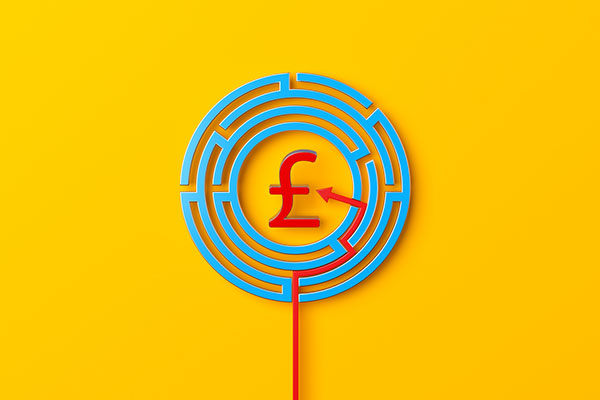Why is everyone talking about ISAs?
24th February 2022 15:00
by Prerna Khemlani from ii contributor
In the third part of a series of articles aimed at beginner investors, self-confessed finance nerd Prerna Khemlani, founder of This Girl Invests, explains why there’s so much fuss about something called ISA season.

I remember going to drinks after work with some colleagues (pre-Covid) and hearing them discuss their latest share purchases. It was so interesting to hear them speak openly about what they had been investing in and I decided to ask, “how did you know where to start investing?”
“Open an ISA and pick shares to invest in,” they said. It sounded easy enough, so that evening I sat in my bed and googled ‘ISAs’, only to find a wide array of providers, many different types of ISAs and little explanation of what was so special about ISAs compared to General Investment Accounts (GIAs).
ISA stands for Individual Savings Accounts – a tax-efficient investment account. In other words, if your money is saved or invested using an ISA you don’t pay tax:
- if your investment grows in value (capital gains tax),
- if it earns interest (income tax)
- and if it earns dividends from companies (income tax).
No income tax and no capital gains tax is an investor’s dream! Taxes on your investments can have a big impact on the return you make on them. It’s why ISAs are a very popular financial product and part of every good financial plan.
- Discover our Don't be shy, ask ii questions here
- Low-cost investments to help get you started – all chosen by our experts
- Want to learn more about the world of investing? Visit our Knowledge Centre
- Check out our award-winning stocks and shares ISA
The government nudges people towards certain financial decisions via their tax systems and structures. In this instance, in the 2021 to 2022 tax year, the UK government allows you to save/invest £20,000 per tax year in an ISA and pay no tax! This is known as the ISA allowance.
Not only that, there are four different types of ISA you can use:
- Cash ISAs – your money is saved and earns interest
- Stocks and Shares ISAs – your money is invested and can grow in value and earn both interest from bonds and dividends from shares
- Innovative Finance ISAs – your money is invested in peer-to-peer loans
- Lifetime ISAs – your money is saved or invested but can only be used for a first property purchase or when you’re over 60.
You’re allowed one of each, so you don’t even have to pick. However, the benefits of cash ISAs have been eroded since the Personal Savings Allowance for interest income increased – you can now earn £1,000 interest tax free (assuming you’re a basic rate taxpayer). You’d have to have £100,000 in a normal savings account earning 1% interest to hit that amount! Therefore, no point wasting your precious ISA allowance on cash ISA, use your allowance for investments and save yourself both capital gains and income tax.
What’s my favourite ISA? Hands down, the Stocks and Shares ISA. You can put in up to £20,000 per tax year and pay no income tax if you earn any income from your investments and no capital gains tax when you sell your investments. Yes, you read that correctly, investing can be tax-free! Couple that with investment growth if you decide to invest more in shares than bonds and your growth rate for each £1 can be 8%, which is the average market return (some years it’s more, some it’s less).
Is there a catch? There is always a catch! The ISA allowance of £20,000 per tax year expires after the end of the tax year, which runs from 6 April to 5 April the following year. Therefore, each April there are reminders everywhere to use your ISA allowance before the end of the tax year. Don’t forget to use your ISA allowance before it expires.
Now you know why everyone is talking about ISAs, share the message and help your friends and family be savvy, tax-efficient investors too.
Prerna Khemlani is the founder of This Girl Invests, which has been featured on Glamour UK and Cosmopolitan UK. This Girl Invests’ mission is to help reduce the gender investment gap by using education as a tool to empower women to invest and to feel #financiallyconfident.
For more jargon-free investing content follow her @thisgirlinvests, or find our more at www.thisgirlinvests.co.uk
These articles are provided for information purposes only. Occasionally, an opinion about whether to buy or sell a specific investment may be provided by third parties. The content is not intended to be a personal recommendation to buy or sell any financial instrument or product, or to adopt any investment strategy as it is not provided based on an assessment of your investing knowledge and experience, your financial situation or your investment objectives. The value of your investments, and the income derived from them, may go down as well as up. You may not get back all the money that you invest. The investments referred to in this article may not be suitable for all investors, and if in doubt, an investor should seek advice from a qualified investment adviser.
Full performance can be found on the company or index summary page on the interactive investor website. Simply click on the company's or index name highlighted in the article.